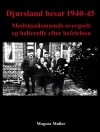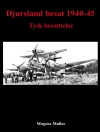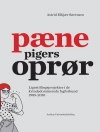During the four decades of the communist regime in Czechoslovakia a vast literature on working-class movements has been produced but it has hardly any value for today’s scholarship. This remarkable study reopens the field. Based on Czech, Slovak, German and other sources, it focuses on the history of the multi-ethnic social democratic labor movement in Slovakia’s capital Bratislava during the period 1867-1921, and on the process of national revolution during the years 1918–19 in particular. The study places the historic change of the former Pressburg into the modern Bratislava in the broader context of the development of multinational pre-1918 Hungary, the evolution of social, ethnic, and political relations in multi-ethnic Pressburg (a ‘tri-national’ city of Germans, Magyars, and Slovaks), and the development of the multinational labor movement in Hungary and the Habsburg Empire as a whole.
Mục lục
Preface
Abbreviations
PART I: CONTEXTS, 1867–1918
Chapter 1. Defining the issue
Chapter 2. In ‘darkest Hungary’
Chapter 3. Pressburg: a multi-ethnic crossroads
Chapter 4. Social democracy and the national question
PART II: EVENTS, 1918–1919
Chapter 5. Revolution and reorientation: October–December 1918
Chapter 6. From Hungary to Czechoslovakia: January 1919
Chapter 7. Hope and hatred: February 1919
Chapter 8. Protest and pragmatism after the February crisis
PART III: RESULTS, 1919–1921
Chapter 9. Social democracy triumphant and fragmented
Chapter 10. Conclusions and perspectives
Glossary
Bibliography
Index
Giới thiệu về tác giả
Pieter C. van Duin studied and worked at the University of Leiden in the 1970s and 1980s. At present he works as an independent historian based in Leiden and Bratislava, Slovakia. His research in social history is mainly concerned with problems of ethnic relations, cultural issues, nationalism, and racism.












